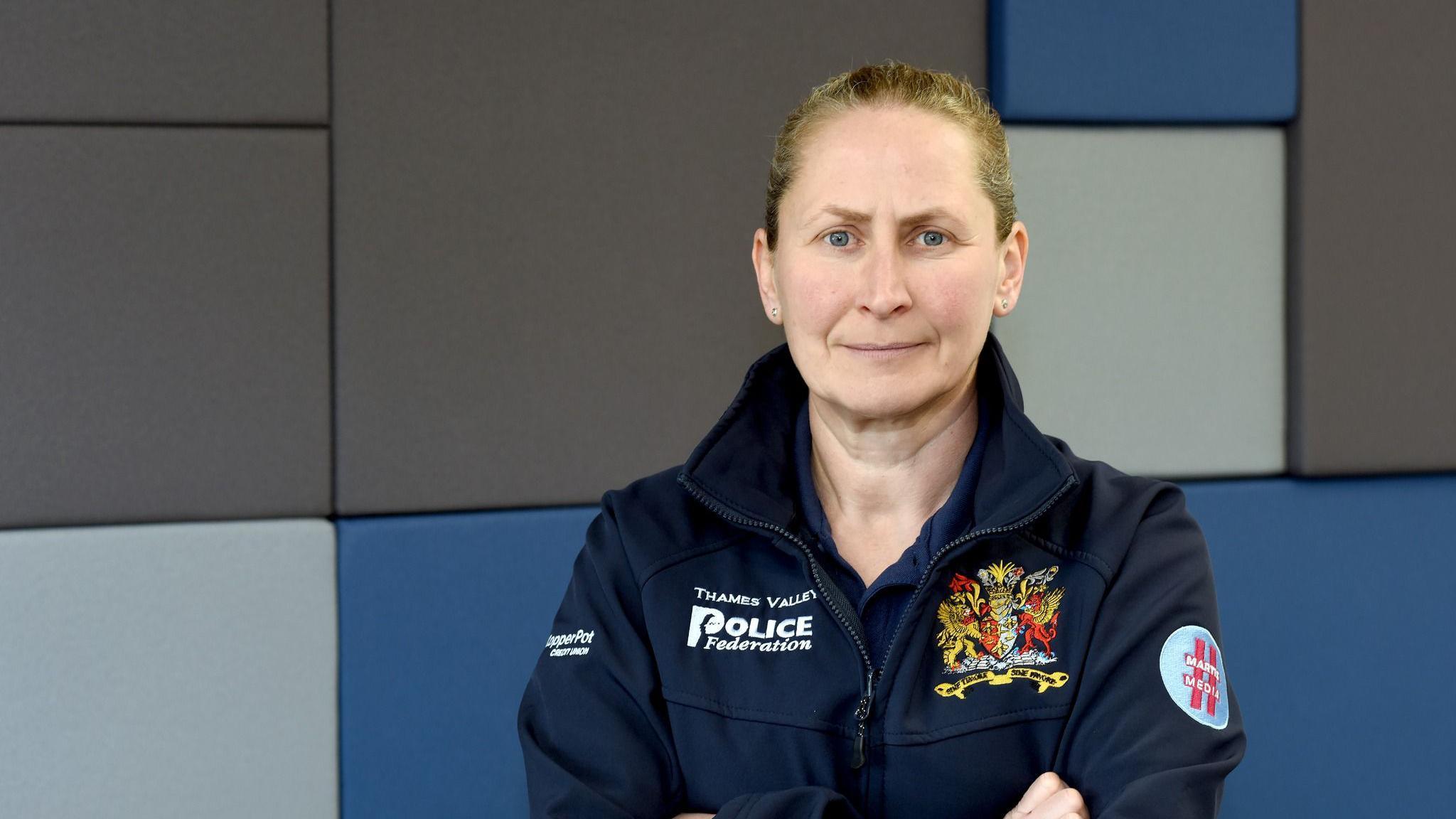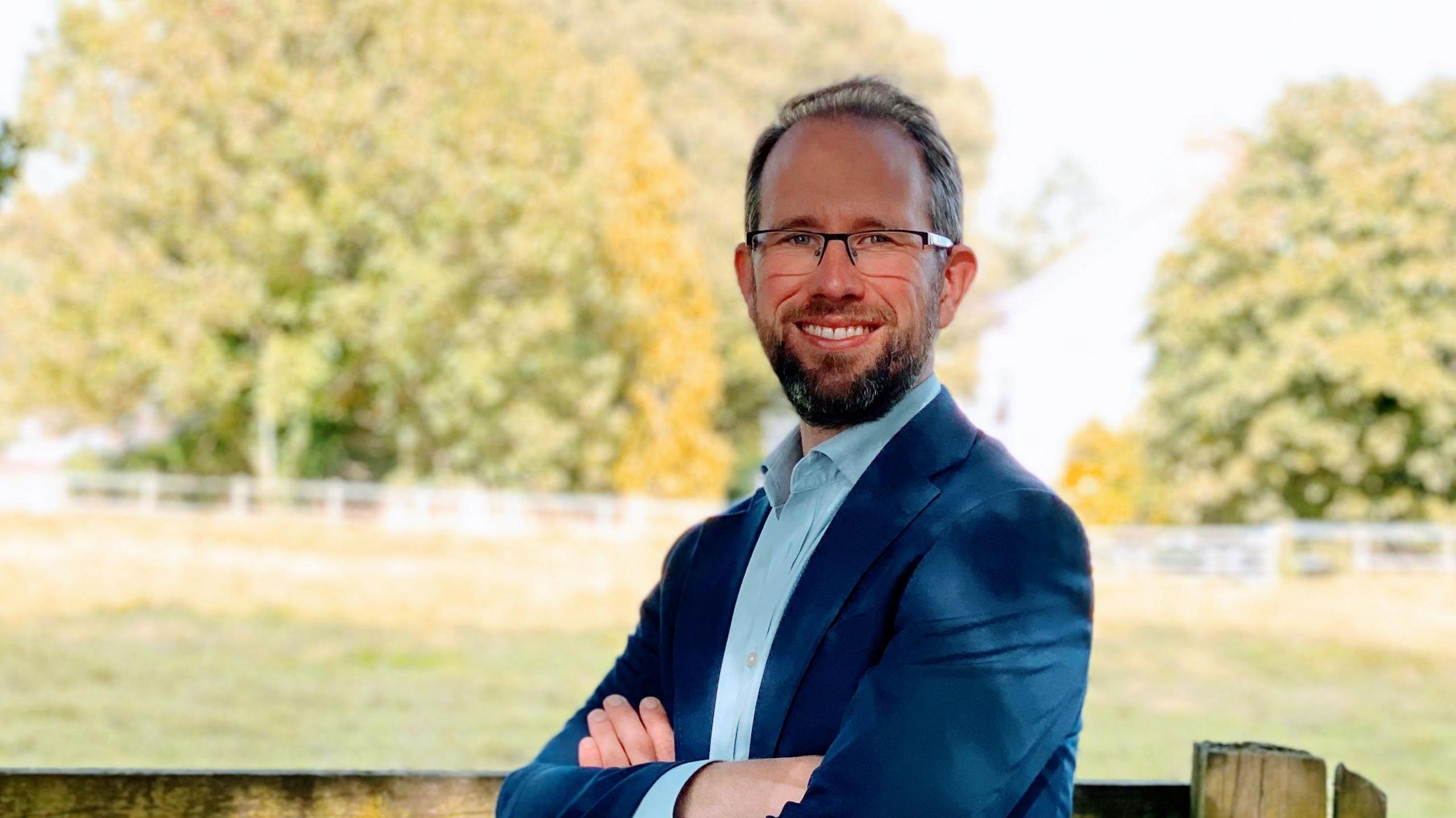Officers' families need support, says police chief

Aileen O'Connor is chair of the Thames Valley Police Federation
- Published
Families of police officers should receive greater support, the head of a regional police federation has told the BBC.
Aileen O’Connor, the chair of Thames Valley Police Federation, said families' lives were often affected by officers’ trauma and their unpredictable work patterns.
The comments follow a report by the Open University that found police families were "often overlooked", although they were "owed a debt of gratitude".
Thames Valley Police Chief Constable Jason Hogg said the force would continue to support officers and their families to the "best of our abilities".
Ms O'Connor told the BBC: "More needs to be done to support families, who ultimately go through exactly what the officers go through when they go home and speak to their loved ones.
"You don't want to take the job home and you don't want to discuss those traumatic events that you've seen, but often that's your only outlet - and that's quite a big burden for them."

Thames Valley PCC Matthew Barber said families of officers were in a "unique position".
A greater "release mechanism" for officers, as well as "tailored support for families" should be introduced, she said.
"That will definitely help officers and their families be more rounded, and help those relationships at home."
Mr Hogg highlighted pre-existing services that are available to officers and their families.
"We remain focused on making continual improvements to our mental health provisions and will continue to work closely on these with our local Police Federation and Unison, through the strong relationships we have with them,” he added.
The author of the Open University report, Dr Sarah-Jane Lennie, said: “Typically, the impact on families, partners, children, parents and grandparents is not recognised.
"Neither is the work that they do to keep their loved ones healthy and well and the family functioning.”
Thames Valley Police and Crime Commissioner Matthew Barber said being a police officer was a "way of life", and it was "right" that the "unique position" of family members was recognised.
"Even when things are going well, families and loved ones will be impacted by shift patterns and anti-social hours; but at the worst of times it is those same loved ones who will provide invaluable help and support for police officers, putting themselves in harm’s way to protect us," he said.
Get in touch
Do you have a story BBC Oxfordshire should cover?
You can follow BBC Oxfordshire on Facebook, external, X (Twitter), external, or Instagram, external.